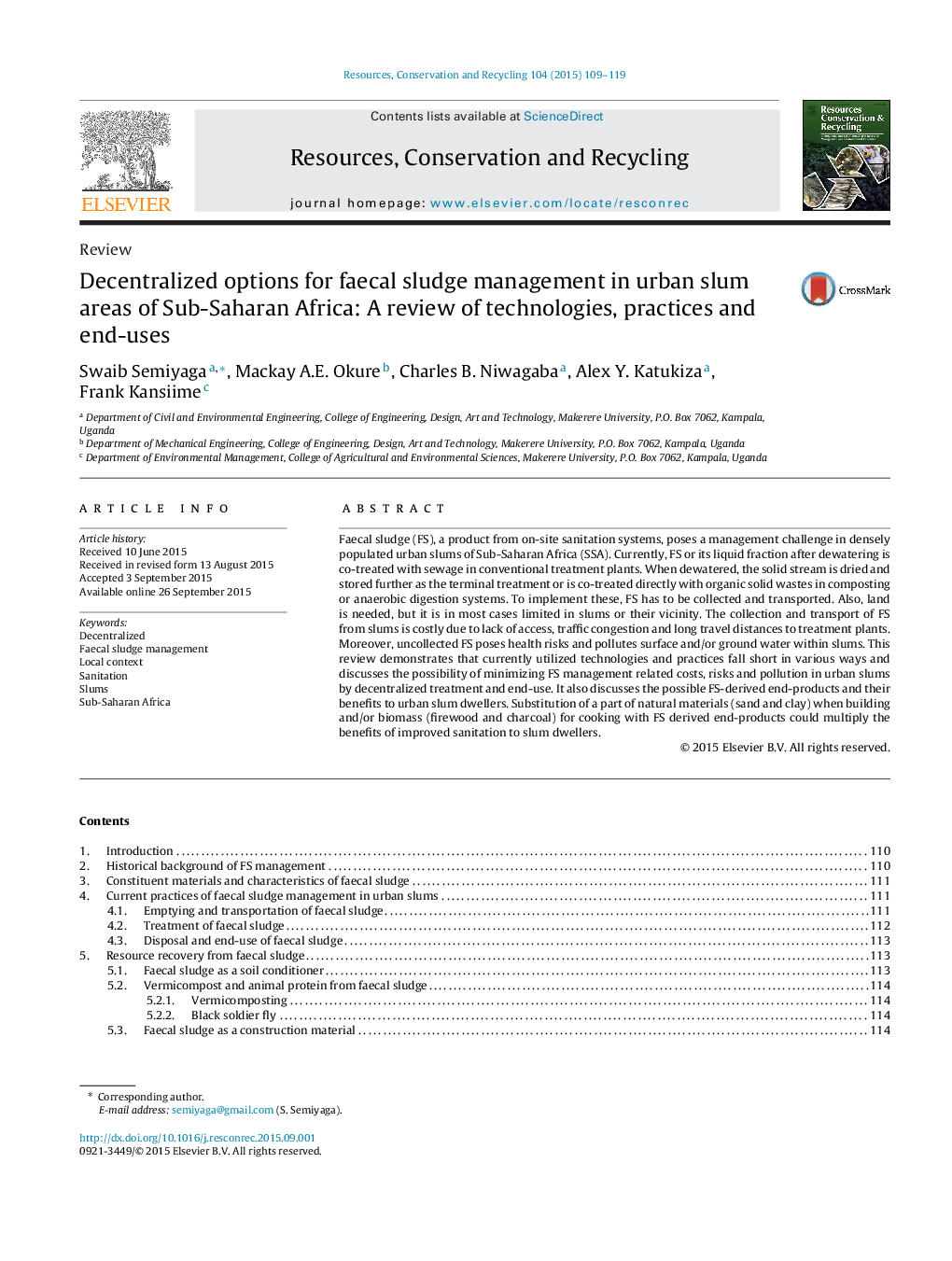| کد مقاله | کد نشریه | سال انتشار | مقاله انگلیسی | نسخه تمام متن |
|---|---|---|---|---|
| 1062814 | 948179 | 2015 | 11 صفحه PDF | دانلود رایگان |
• Faecal sludge management in Europe faced similar challenges, currently faced in urban slums.
• In decentralized systems, transportation is minimal, focus is on treatment and disposal.
• Innovative faecal sludge derived products could motivate slum dwellers to manage it.
• Resource recovery can incentivize faecal sludge management to bear its own cost.
Faecal sludge (FS), a product from on-site sanitation systems, poses a management challenge in densely populated urban slums of Sub-Saharan Africa (SSA). Currently, FS or its liquid fraction after dewatering is co-treated with sewage in conventional treatment plants. When dewatered, the solid stream is dried and stored further as the terminal treatment or is co-treated directly with organic solid wastes in composting or anaerobic digestion systems. To implement these, FS has to be collected and transported. Also, land is needed, but it is in most cases limited in slums or their vicinity. The collection and transport of FS from slums is costly due to lack of access, traffic congestion and long travel distances to treatment plants. Moreover, uncollected FS poses health risks and pollutes surface and/or ground water within slums. This review demonstrates that currently utilized technologies and practices fall short in various ways and discusses the possibility of minimizing FS management related costs, risks and pollution in urban slums by decentralized treatment and end-use. It also discusses the possible FS-derived end-products and their benefits to urban slum dwellers. Substitution of a part of natural materials (sand and clay) when building and/or biomass (firewood and charcoal) for cooking with FS derived end-products could multiply the benefits of improved sanitation to slum dwellers.
Journal: Resources, Conservation and Recycling - Volume 104, Part A, November 2015, Pages 109–119
